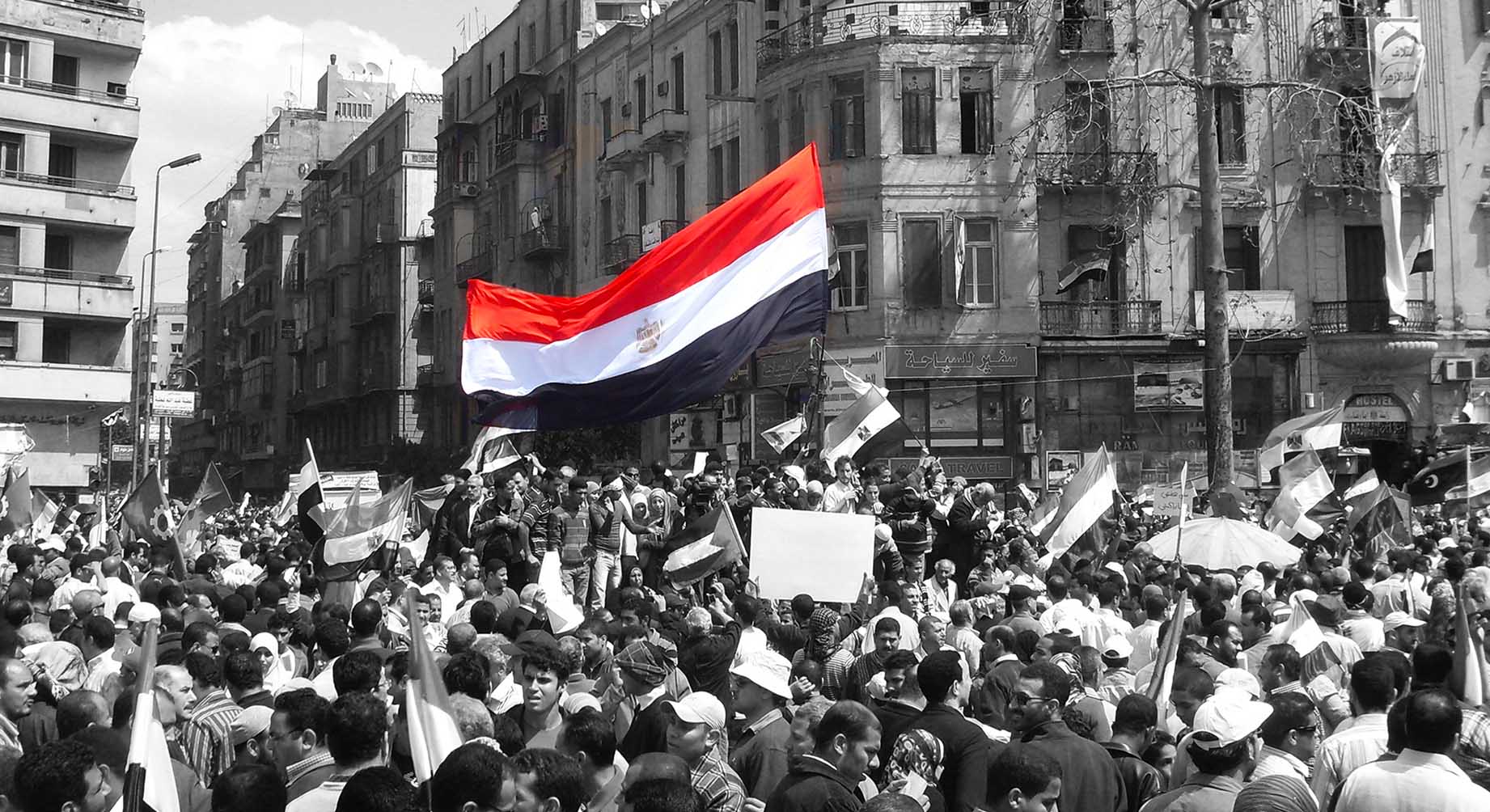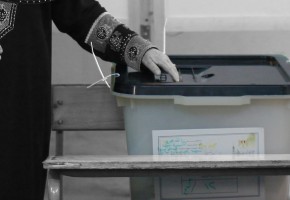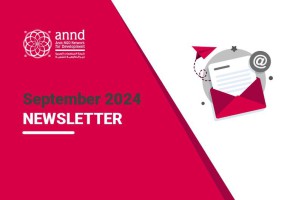
Civil Society in Egypt and the War on Gaza
Introduction
Civil society organizations (CSOs) in Egypt were preoccupied with the presidential elections when the aggression that followed the October 7 operations on Gaza added a major topic to their agenda and a regional dimension to their activities, which soured relations with partner organizations in the West. On the other hand, the government found in the Gaza events and the public's preoccupation with the ongoing genocide there a favorable opportunity to pass several items that had been postponed until after the elections, such as a new devaluation of the currency and a new wave of restrictions.
Emerging challenges and motivating factors:
Pro-Palestinian demonstrators were arrested in several governorates. As the war on Gaza raged, many Egyptians joined marches to support the Palestinian people. However, several CSOs have documented cases of disappearance and detention.i The Egyptian authorities, the Passport and Immigration Service, also refused to extend or issue transit and temporary residence permits for Gazans stranded in Egypt.ii
The war on Gaza expanded the scope of government censorship on social media sites and the digital space. State security cases increased, resulting in the imprisonment of users of social networking sites, especially TikTok. This period witnessed an increase in the number of citizens imprisoned for sharing videos on social media platforms.
Moreover, the economic and social crisis affected the relationship between the state and society, especially with the state’s use of security measures against citizens for expressing their opinions and using the repercussions of the situation in Gaza as a scarecrow.iii As the war on Gaza continues, the pace and repercussions of the economic crisis in Egyptiv will likely accelerate, leading to an increase in state violence against society.
The War's Impact on Egyptian Civil Society:
Civil society work in the public sphere declined in favor of the events in Palestine. Support by CSOs was on two levels:
1. The first is humanitarian support by providing humanitarian aid and relief, which most Egyptian humanitarian organizations were interested in as interaction with the war on Gaza continued. As Ramadan approached, relief operations and donation drives for Gaza continued to take the most space in charitable work. In parallel, at the development level, the government still believes that centers and institutions must work within the state’s plan, which deprives them of the independence necessary for civil society, as human rights organizations face more restrictions.
2. The second is the legal support provided by some centers. For example, several Egyptian CSOs issued a joint statement calling on the Egyptian government to immediately respond to the appeal of the Palestinian Health Ministry and the Gaza Government Media Office to the Egyptian authorities to open the Rafah crossing and allow the entry of humanitarian and medical aid.v In addition to documenting violations and international condemnation of the genocide taking place in Palestine, some human rights organizations condemned the refusal of the Egyptian authorities - specifically the Passports and Immigration Service - to extend or issue transit and temporary residence permits for Gazans stranded in Egypt. They called on the Egyptian authorities to issue an urgent decision to extend all transit and residence permits for at least three renewable months until the war stops.vi
Furthermore, about 140 international human rights organizations submitted a memorandum to intervene in the appeal submitted by organizations in the case (DCI - Palestine, and others, v. Biden and others) before the Ninth Circuit of the US Court of Appeals (Case No. 24-704). The district court's decision was appealed because it refused to decide the case, considering a matter for US political authorities.vii Other organizations monitored the role of Western countries in the condemnation process or in censuring Egyptian organizations due to their position in support of Palestinian rights.viii The strategy meant a shift from a defensive to an offensive position. For example, the Egyptian Initiative for Personal Rights (EIPR) announced that it has officially joined a federal lawsuit in the US accusing [US President Joe] Biden, [US Secretary of State Anthony] Blinken, and [Secretary of Defence Loyd J.] Austin of participating in the crime of genocide against the Palestinians.ix
This situation impacted the right to demonstrate. Initially, the authorities tolerated the Pro-Palestinian marches. However, they quickly relented, fearing the repercussions. They detained several demonstrators around the country. They even arrested a group of women outside the UN WOMEN offices who wanted to submit a petition calling on the agency to provide immediate protection for women in Palestine and Sudan. The women were subsequently released.
In light of Egy[t's bargaining over its role with the West and due to pressures from the EU (following discussions on loans worth 12 billion Dollars), the state closed the 11-year-old civil society case. Several civil society workers had been sentenced and banned from travel as a result. Some linked the decision to the war on Gaza and the fear of more widespread escalations that might require Egypt to intervene.
The War on Gaza: Engineered Priorities and Pending Tasks:
Relief and humanitarian work has occupied the most prominent position in the reaction to the crisis. Many state institutions were involved in relief. In February 2024, the Egyptian Youth Council, a member of the National Alliance for Civil Development Action, announced the launch of the first international conference under the slogan "Together towards strengthening the role of civil society in the humanitarian relief process."x Moreover, during his participation in a dialogue session regarding the situation in the Gaza Strip, within the activities of the second day of the World Economic Forum hosted in Riyadh, Egypt's Prime Minister said that "more than 85% of all humanitarian aid that reached the Gaza Strip was mobilized by the Egyptian government and Egyptian civil society."xi
However, the first priority was preventing the Palestinian issue from spilling into neighboring countries. Since the start of the current crisis in Palestine and on more than one occasion, Egyptian officials described Israel’s policy of forced displacement as a war crime. Egyptian President Abdel Fattah El-Sisi repeatedly stressed that his country "has not and will not allow the liquidation of the Palestinian cause at the expense of neighboring countries." He stressed that Egypt "will not be complacent in protecting its national security."xii This entailed the suppression of any manifestation of solidarity outside the framework of the state.
Regarding the security threat to pro-Palestinian marches and demonstrations, the freedom to organize demonstrations continued to be restricted. Many pro-Palestinian demonstrators were arrested in Cairo. The courts renewed some prison sentences several times. It also happened in other governorates, where the prosecution charged demonstrators with joining terrorist organizations, spreading fake news, and participating in a gathering that would endanger public order.xiii
Partners or Bosses?
Due to the war on Palestine, civil society was subjected to new pressures from the Egyptian government. It launched extensive defamation campaigns against many CSOs. For example, a widespread defamation campaign began against the Sinai Foundation for Human Rights and its director on television, in newspapers, and through social media platforms. The attacks followed a report by the Foundation and its director's appearance on YouTube, where he linked the situation in Sinai to the ongoing war on Gaza. The Egyptian government also responded to the report.xiv EIPR's Executive Director was also targeted recently for joining a small human rights delegation in a meeting with Belgian Prime Minister Alexander De Croo during his visit to Egypt. The meeting aimed to discuss the Palestinian question and the war in Gaza and to send a message to European leaders concerning the war and the international human rights system.xv
In the same context, civil society had no better luck in dealing with partners and Western donors. Donor organizations pressured civil society regarding its position on the Gaza war. The most prominent example of such pressure was when the German government withdrew funding from a human trafficking project by the Center For Egyptian Women's Legal Assistance for signing a statement condemning Israel and standing in solidarity with the people of Gaza.xvi Moreover, several projects by private organizations working with German counterparts were delayed or had their budgets reduced. On the other hand, some CSOs announced that they had stopped dealing with foreign partners due to their negative stance on the situation in Gaza. Egyptian organizations saw that cooperation with these parties would make them lose credibility.
The situation reached the press when the BBC suspended its Cairo correspondent Sally Nabil and referred her for disciplinary investigation for violating the broadcaster's policy on the use of social media, her bias against Israel, and her position on the ongoing genocide in Gaza.xvii However, restrictions imposed by external partners peaked at the beginning of the crisis. They declined significantly as Israel continued its genocide.
Conclusion:
These developments boosted the effectiveness of state-affiliated organizations and alliances, especially those concerned with humanitarian and relief work. However, their claim to be part of civil society threatens active independent institutions, especially with donors preferring to "work in safe spaces" after the Gaza war. Civil Society also fears that the government could use the situation in Gaza as an excuse to increase internal security pressures and tighten its control over civic space. The government had taken formal steps to bring some relief to the public sphere to appease donors and financial institutions. However, government pressure on civil society and workers organizations is increasing.
Rising challenges allow monitoring the compatibility of strategies for interacting with the war in Gaza with confronting internal repression of CSOs. Those who adopted the approach of working in available spaces focused on documentation and participation in relief work and had great success. However, those who embraced the strategy of external pressure directed their attention to UN organizations, international bodies and courts, and donors. They lobbied to pressure them not to impose restrictions on local organizations and to modify their positions on the war in Gaza. On the other hand, those who believed in the need to build an internal blox tried to mobilize public opinion, raise issues, and mobilize supporters for the cause. However, they did not achieve their goals due to the current repression, which suggests that it is the weakest strategy in the dominant public context, whether in relation to the Palestinian question or internal affairs.
Finally, the state's strategy of using associations and alliances under its control continued, whether in relief or propaganda for Egypt's role in the war. It restricted independent organizations and activists. The various parties use similar strategies in internal and regional issues. Perhaps we can say that we are faced with ideologies, not strategies.
Reference:
i القبض على عشرات المتظاهرين في القاهرة والإسكندرية والمحافظات من
“مظاهرات دعم فلسطين”.. وعرض 14 شخصا فقط على النيابة، المفوضية المصرية
للحقوق والحريات، https://cutt.ly/Fewu9Maj
ii مطالبة بتحرك حكومي
عاجل بخصوص تصاريح إقامة أهالي قطاع غزة في مصر، منصة اللاجئين في مصر، 17
ديسمبر 2023، https://cutt.ly/gewiyw7g
iii بعض النصائح للإفلات من
رقابة الانترنت، الصفحة الرسمية لمؤسسة حرية الفكر والتعبير، 8 فبراير
2024، https://cutt.ly/Xw1mdflR
iv الجبهة المصرية لحقوق الإنسان تدين الحملة الأمنية...، الجبهة المصرية لحقوق الإنسان، 26 مارس 2024، https://shorturl.at/ewCI7
v التداعيات الاجتماعية والاقتصادية المحتملة لحرب غزة على البلدان العربية المجاورة، UNESCO، https://cutt.ly/JewiomLz
vi
مطالبة باستجابة عاجلة للأزمة الصحية في قطاع غزة … 6 آلاف جريح مهدده
حياتهم بسبب عجز الإمكانيات الطبية، الجبهة المصرية لحقوق الإنسان، 18
يناير 2024، https://cutt.ly/LwX1AXuo
vii مطالبة بتحرك حكومي عاجل
بخصوص تصاريح إقامة أهالي قطاع غزة في مصر، الجبهة المصرية لحقوق الإنسان،
17 ديسمبر 2023، https://cutt.ly/BwGBznaD
viii نحو 140 منظمة حقوقية
تحث المحاكم الفيدرالية على محاسبة الولايات المتحدة...، المبادرة المصرية
للحقوق الشخصية، 16 مارس 2024، https://rb.gy/v6bg6u
ix هيومن رايتس واتش، https://cutt.ly/7ewirkC5
x موقع درب: https://rb.gy/6bxfro
xi
يسرا البسيوني، «الشباب المصري» يطلق المؤتمر الدولي لتعزيز دور المجتمع
المدني في الإغاثة الإنسانية، جريدة الوطن، 1 فبراير 2024،
https://bit.ly/3wJL0zn
xii كريم حسن، مدبولي: أكثر من 85% من جميع
المساعدات لغزة حشدتها الحكومة والمجتمع المدني المصري، جريدة الأهرام، 29
إبريل 2024، https://cutt.ly/rewiriEY
xiii أسامة السعيد، شمال افريقيا ما مخاطر توسيع الحرب جنوب غزة على مصر؟، الشرق الأوسط، 20 نوفمبر 2023، https://cutt.ly/FewuXAff
xiv كريم حسن، مدبولي: أكثر من 85% من جميع المساعدات لغزة حشدتها الحكومة والمجتمع المدني المصري، مرجع سابق.
xv جنايات القاهرة تجدد حبس...، مؤسسة حرية الفكر والتعبير، 19 مارس 2024، https://cutt.ly/Iw7nYpNV
xvi الجنايات تجدد حبس...، لمدة ٤٥ يومًا، مؤسسة حرية الفكر والتعبير، 9 مارس 2023، https://cutt.ly/lw7nIIJ3
xvii
مصر: تشهير وتهديدات لمنظمة حقوقية ومديرها … هجمة انتقامية بعد تقارير
حول الأحداث على الحدود مع غزة، مؤسسة حرية الفكر والتعبير، 26 فبراير
2024، https://cutt.ly/9w1b7cvc
xviii https://manassa.news/news/16746
xix https://rb.gy/s1qqzz
xx
بي بي سي تواصل استهداف مراسلتها في مصر سالي نبيل بتهمة الانحياز لفلسطين
والمبادرة المصرية تتولى الدفاع القانوني، المبادرة المصرية للحقوق
الشخصية، 14 فبراير 2024، https://bit.ly/3VdeTT2
Recent publications

Thematic Report: Exploiting Resources, Ignoring Rights: A Political Ecology of Water and Energy in the Arab World
Related publications


